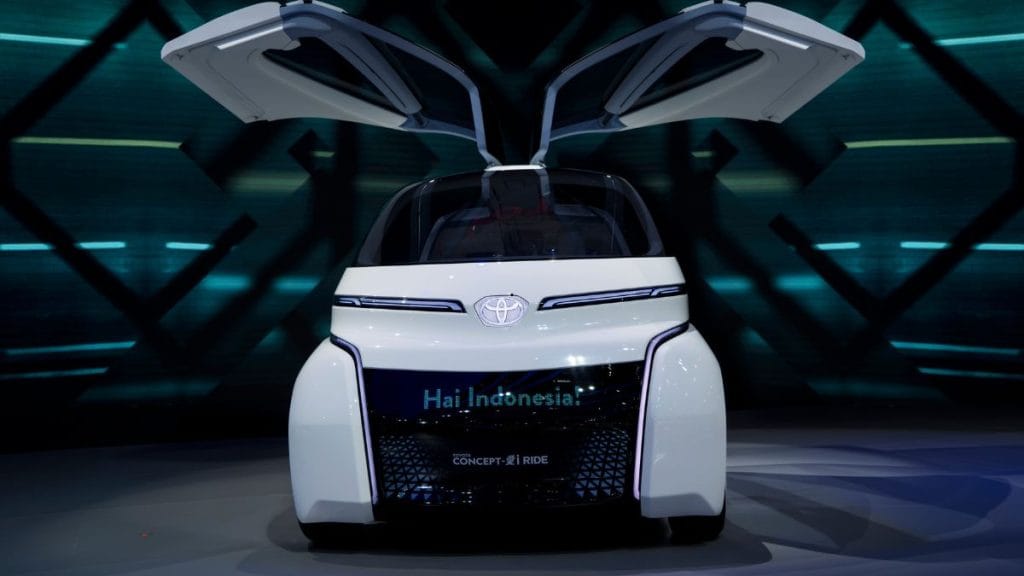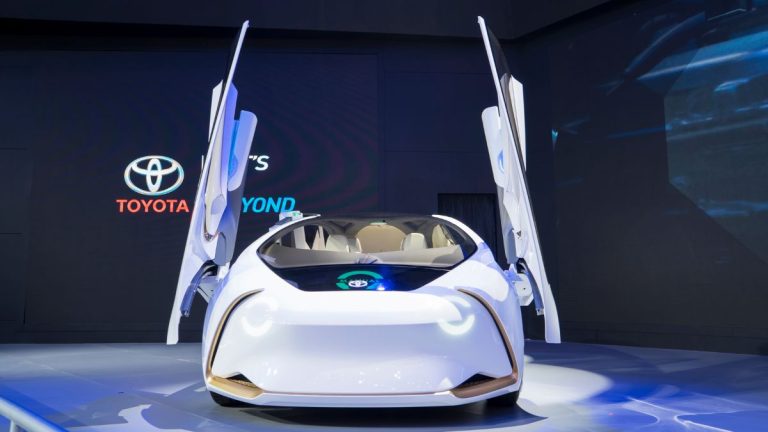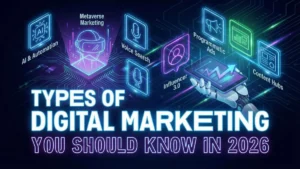Toyota, a name synonymous with reliability and innovation, continues to set benchmarks in the global automotive industry. In 2024, the world of automobiles is undergoing a seismic shift, driven by electrification, sustainability, and advanced technology. Toyota stands at the forefront of this revolution, leveraging decades of expertise to redefine the driving experience.
From pioneering hybrid technology with the Prius to investing heavily in hydrogen fuel cells, Toyota has consistently evolved to meet the demands of the times. This case study delves into Toyota’s journey in 2024, exploring how it tackles challenges, seizes opportunities, and stays ahead of competitors in a fiercely competitive market.
The company’s efforts go beyond producing vehicles; they embody a commitment to creating a sustainable future. Toyota’s leadership in innovation and its steadfast focus on customer satisfaction make it a compelling case study for understanding the future of mobility. Let’s dive deeper into what makes Toyota a game-changer in the automotive industry.
The Evolution of Toyota: A Brief History
Founding and Early Innovations
Toyota’s journey began in 1937 when Kiichiro Toyoda founded the company in Japan. From its humble beginnings, Toyota has always prioritized innovation and efficiency. The Toyota Production System (TPS), introduced in the mid-20th century, revolutionized manufacturing with its focus on lean principles, reducing waste while enhancing productivity. This approach not only cemented Toyota’s reputation as a manufacturing powerhouse but also influenced industries worldwide.
The Journey to Global Dominance
Toyota’s ability to adapt and innovate has been key to its success. By the 1970s, models like the Corolla became household names, offering reliability and affordability. The 1997 launch of the Prius marked a pivotal moment in automotive history, as it introduced hybrid technology to the mainstream. This bold move positioned Toyota as a leader in eco-friendly vehicles, a legacy it continues to build on in 2024.
The Automotive Industry Landscape in 2024
The Global Push for Electrification

The automotive industry is at a tipping point in 2024. Governments worldwide are implementing stringent emissions regulations and offering incentives for electric vehicle (EV) adoption. Consumers, too, are embracing greener alternatives, driven by environmental awareness and rising fuel costs. Toyota has adapted to this shift with a robust lineup of hybrids, EVs, and hydrogen-powered vehicles, ensuring it remains relevant in a rapidly changing market.
Competition Among Giants
Toyota faces stiff competition from established automakers like Tesla and Volkswagen, as well as new entrants like Rivian and Lucid Motors. While rivals often focus exclusively on EVs, Toyota distinguishes itself by diversifying its portfolio and investing in hydrogen technology. This approach allows the company to cater to a broader audience while hedging against uncertainties in the market.
Toyota’s Strategic Vision for 2024
Emphasis on Carbon Neutrality

Toyota’s vision for 2024 and beyond is deeply rooted in achieving carbon neutrality. The company has set ambitious goals to reduce CO2 emissions throughout its vehicle lifecycle, from manufacturing to end-of-life recycling. Central to this effort is Toyota’s Environmental Challenge 2050, which outlines a comprehensive plan to minimize the environmental impact of its operations.
One of Toyota’s standout initiatives is its investment in renewable energy solutions, such as solar and wind power, to run its manufacturing facilities. By 2024, many of Toyota’s plants are already operating with significant reductions in carbon footprints, setting a benchmark for the entire industry. This focus on sustainability extends to their vehicles, with advancements in both hybrid and all-electric technology.
Toyota also invests heavily in green technologies like hydrogen fuel cells, which offer a promising alternative to traditional EVs. This dual strategy of pursuing electrification and hydrogen fuel underscores the company’s commitment to addressing climate change on multiple fronts.
Digital Transformation
In an age where technology shapes every industry, Toyota is leveraging digital transformation to stay ahead. The integration of artificial intelligence (AI), the Internet of Things (IoT), and big data has significantly enhanced the company’s manufacturing processes and product offerings.
In 2024, Toyota’s connected car technology takes center stage, offering drivers seamless integration with smart devices, real-time traffic updates, and predictive maintenance alerts. This interconnected ecosystem not only enhances the driving experience but also aligns with Toyota’s broader vision of creating smart mobility solutions.
On the factory floor, Toyota uses advanced robotics and AI-driven quality control systems to optimize production. These innovations ensure greater efficiency and precision while reducing waste, further supporting Toyota’s sustainability goals.
Electric Vehicles and Beyond: Toyota’s Approach
Leadership in Hybrid Technology

Toyota’s leadership in hybrid vehicles remains unmatched in 2024. The company’s hybrid models, such as the Prius and RAV4 Hybrid, continue to dominate sales charts worldwide. Hybrids serve as an essential bridge for customers transitioning from traditional internal combustion engines (ICE) to fully electric powertrains.
What sets Toyota apart is its ability to combine efficiency with affordability. Hybrids are often more accessible than EVs, making them an attractive option for consumers in emerging markets where charging infrastructure may still be limited. Toyota’s hybrid technology represents the perfect blend of practicality and environmental responsibility.
All-Electric Lineup Expansion
While Toyota has historically been cautious in adopting fully electric vehicles, 2024 marks a turning point. The company’s Beyond Zero (BZ) series showcases its commitment to producing cutting-edge EVs. Models like the bZ4X highlight Toyota’s focus on design, range, and affordability, addressing the common pain points associated with EV adoption.
Toyota’s new EV platforms utilize solid-state batteries, a revolutionary technology that offers faster charging, increased safety, and longer lifespans compared to traditional lithium-ion batteries. With these advancements, Toyota is poised to compete directly with industry leaders like Tesla, delivering vehicles that meet the needs of modern consumers.
Betting on Hydrogen
Toyota continues to champion hydrogen fuel cell technology, a segment where it has maintained leadership since the launch of the Mirai. Hydrogen fuel cells offer unique advantages, including rapid refueling times and zero emissions, making them ideal for commercial vehicles and long-distance travel.
In 2024, Toyota has expanded its hydrogen portfolio, targeting sectors like public transportation and logistics. Despite the challenges associated with hydrogen infrastructure, Toyota’s perseverance reflects its belief in the technology’s long-term potential to complement electrification.
Manufacturing Excellence in 2024
Advancements in the Toyota Production System
The Toyota Production System (TPS) has long been a hallmark of efficiency and innovation. In 2024, Toyota builds on this legacy by incorporating smart manufacturing techniques. The use of automation, robotics, and real-time data analytics has elevated the efficiency of its factories.
Toyota’s factories are increasingly powered by renewable energy, reducing their environmental impact while maintaining high output levels. The integration of 3D printing and AI in prototyping and production has also reduced costs and development timelines, allowing Toyota to respond swiftly to market demands.
Supply Chain Innovations
Supply chain disruptions, such as semiconductor shortages, have plagued the automotive industry in recent years. Toyota’s proactive approach to building a resilient supply chain sets it apart from competitors. By diversifying its supplier base and investing in local production, Toyota ensures a steady flow of critical components.
In addition, Toyota has adopted digital tools to monitor and optimize its supply chain operations. These innovations help the company maintain its reputation for reliability, even in the face of global challenges.
Toyota’s Role in Shaping Sustainability
Green Factories and Renewable Energy
Toyota’s commitment to sustainability extends beyond its vehicles to its manufacturing processes. The company has invested in green factory initiatives, employing renewable energy sources like solar and wind power to reduce carbon emissions. Many of Toyota’s plants now operate as zero-emission facilities, demonstrating its leadership in sustainable manufacturing.
Sustainable Materials and Recycling
In line with its environmental goals, Toyota prioritizes the use of sustainable materials in its vehicles. By incorporating recycled plastics, bio-based materials, and lightweight composites, the company reduces its environmental footprint without compromising on quality.
Toyota has also introduced programs to recycle EV batteries, ensuring the sustainable lifecycle of its electric vehicles. These efforts underline the company’s holistic approach to sustainability, addressing challenges at every stage of the production process.
Marketing and Customer Engagement in 2024
Targeting Emerging Markets
Emerging markets represent a significant growth opportunity for Toyota in 2024. Countries in Asia, Africa, and South America are experiencing a surge in automobile demand, driven by rising incomes and urbanization. Toyota’s strategy in these regions is to provide affordable, fuel-efficient vehicles that cater to the specific needs of these markets.
Toyota is also introducing budget-friendly electric and hybrid vehicles tailored for developing economies. For example, compact EVs with shorter ranges but lower costs address infrastructure limitations while meeting consumer demand. By balancing affordability with sustainability, Toyota is making environmentally friendly vehicles accessible to millions of new customers.
Leveraging Digital Platforms
Toyota’s marketing approach in 2024 embraces digital transformation to engage customers more effectively. Virtual showrooms powered by augmented reality (AR) allow potential buyers to explore vehicle models from the comfort of their homes. This innovative approach not only enhances convenience but also appeals to tech-savvy younger generations.
Toyota has also expanded its online sales platforms, enabling customers to customize vehicles, arrange financing, and schedule test drives seamlessly. By prioritizing a customer-centric approach, Toyota strengthens its connection with its audience and reinforces its reputation for quality and reliability.
Challenges and Criticism
Balancing Tradition with Innovation
Despite its success, Toyota faces criticism for its conservative approach to adopting full electrification. While competitors like Tesla focus exclusively on EVs, Toyota has maintained a diversified portfolio, including hybrids and hydrogen fuel cells. Critics argue that this strategy risks falling behind in the race for EV market dominance.
However, Toyota defends its approach, emphasizing the importance of offering a range of solutions to meet diverse consumer needs. The company’s commitment to innovation, coupled with its cautious yet strategic decision-making, reflects its goal of achieving long-term sustainability and resilience.
Regulatory and Competitive Pressures
Navigating a complex regulatory environment remains a significant challenge for Toyota. Governments worldwide are implementing stricter emissions standards and deadlines for phasing out ICE vehicles. Meeting these requirements while maintaining profitability demands substantial investment in R&D and infrastructure.
Competition is another pressing concern, with startups like Rivian and legacy automakers like Volkswagen intensifying the race for EV supremacy. Toyota’s ability to innovate while staying true to its core values will determine its success in overcoming these hurdles.
The Future of Toyota: Looking Ahead
R&D Investments
Research and development are at the heart of Toyota’s long-term vision. The company is investing heavily in advanced technologies such as autonomous driving systems, solid-state batteries, and artificial intelligence. Collaborations with tech companies and startups are accelerating the pace of innovation, ensuring Toyota remains at the cutting edge of the automotive industry.
For instance, Toyota’s autonomous vehicle division, Woven Planet, is pioneering self-driving technology that prioritizes safety and reliability. These advancements promise to redefine mobility and create new opportunities in ride-sharing and logistics.
The Vision for 2030 and Beyond
Looking beyond 2024, Toyota envisions a future where mobility solutions extend beyond personal vehicles. The company is actively contributing to the development of smart cities, integrating connected vehicles, public transportation, and renewable energy systems into a cohesive ecosystem. By aligning its goals with broader societal needs, Toyota aims to shape a sustainable and inclusive future.
Key Takeaways
Toyota’s journey in 2024 highlights its role as a transformative force in the automotive industry. The company’s ability to balance tradition with innovation, sustainability with profitability, and diversity with specialization sets it apart from competitors. By embracing electrification, hydrogen technology, and digital transformation, Toyota continues to lead the way toward a cleaner, smarter, and more connected future.
For automakers, Toyota serves as a blueprint for navigating the challenges and opportunities of a rapidly evolving industry. Its focus on customer satisfaction, environmental responsibility, and technological excellence offers valuable lessons for businesses across sectors.
Conclusion
Toyota’s impact on the auto industry in 2024 is undeniable. As a pioneer of hybrid technology and a leader in sustainability, the company continues to redefine the boundaries of innovation. By embracing change and staying true to its core values, Toyota not only adapts to the demands of the modern era but also shapes the future of mobility.
Whether through its advancements in hydrogen fuel cells, its leadership in EV production, or its commitment to a sustainable planet, Toyota remains a symbol of resilience and progress. As the automotive industry continues to evolve, Toyota’s legacy as a trailblazer is set to endure.
FAQs
What makes Toyota a leader in the automotive industry?
Toyota’s leadership stems from its innovative technologies, such as hybrid vehicles and hydrogen fuel cells, combined with its focus on sustainability, quality, and customer satisfaction.
How is Toyota balancing EVs and hydrogen vehicles?
Toyota adopts a dual strategy, investing in both EVs and hydrogen fuel cell vehicles to provide diverse solutions for different market needs and environmental goals.
What are Toyota’s goals for sustainability?
Toyota aims to achieve carbon neutrality by 2050, focusing on renewable energy, green manufacturing, and sustainable materials in its vehicles.
How does Toyota’s technology compare to Tesla’s?
While Tesla leads in EV technology and autonomous driving, Toyota offers a broader range of solutions, including hybrids, EVs, and hydrogen fuel cells, appealing to a wider audience.
What challenges does Toyota face in 2024?
Toyota faces regulatory pressures, intense competition, and criticism for its cautious approach to electrification. However, its diversified strategy and commitment to innovation position it well for the future.




